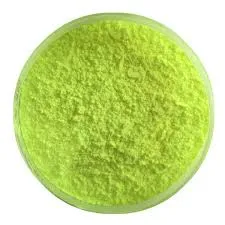The Importance of Sewage Treatment Chemicals in Water Management
Sewage treatment is an essential aspect of modern sanitation and environmental management, playing a crucial role in ensuring that wastewater is adequately treated before being released back into the ecosystem. Central to this process are sewage treatment chemicals, which help facilitate the breakdown of pollutants, improve water quality, and prevent environmental degradation. This article explores the various types of sewage treatment chemicals, their functions, and their significance in promoting sustainable water management.
Types of Sewage Treatment Chemicals
Sewage treatment chemicals can be broadly categorized into several groups, each with its unique applications. These include coagulants, flocculants, disinfectants, pH control agents, and odor control chemicals.
1. Coagulants These chemicals are used to aggregate suspended solids in wastewater, making it easier to remove them during the treatment process. Common coagulants include aluminum sulfate (alum) and ferric chloride. By destabilizing the fine particles in sewage, coagulants help form larger clumps (flocs) that can be more readily separated from the liquid.
2. Flocculants Often used in conjunction with coagulants, flocculants help further bind the flocs together, enhancing the sedimentation process. Polyacrylamides are widely used flocculants that improve the efficiency of solid-liquid separation in treatment plants.
3. Disinfectants The final stages of sewage treatment often incorporate disinfectants to eliminate harmful pathogens before the treated water is released or repurposed. Chlorine, ozone, and ultraviolet (UV) light are commonly used disinfection methods, each having its advantages and environmental implications.
4. pH Control Agents Maintaining the appropriate pH level is crucial for effective sewage treatment, as many biological processes operate within specific pH ranges. Chemicals like lime and sulfuric acid are used to adjust the pH of wastewater to optimize conditions for microorganisms involved in biological treatment.
5. Odor Control Chemicals Sewage treatment facilities often face issues with unpleasant odors, which can lead to complaints from nearby communities. Chemical agents, such as sodium hypochlorite and calcium nitrate, can help neutralize odors, improving the overall acceptance of treatment facilities.
sewage treatment chemicals

Significance in Sustainable Water Management
The application of sewage treatment chemicals is vital in ensuring that treated effluent meets safety standards for discharge. With increasing urbanization and the strain on water resources, wastewater reclamation has become a critical component of sustainable water management. Properly treated sewage can be reused for irrigation, industrial processes, or even as potable water through advanced treatment technologies, thus conserving freshwater resources.
Moreover, these chemicals contribute to the protection of aquatic ecosystems. By effectively removing pollutants, nutrients, and pathogens from wastewater, treatment chemicals help mitigate the risk of waterborne diseases and prevent the eutrophication of receiving waters, which can lead to harmful algal blooms and loss of biodiversity.
Challenges and Future Directions
Despite their importance, the use of sewage treatment chemicals is not without challenges. Some chemicals can be harmful to the environment if not managed correctly, leading to secondary pollution. There is also an ongoing need for research into more sustainable alternatives and the development of green chemistry solutions that minimize the environmental impact of sewage treatment processes.
With increasing awareness of water scarcity and environmental sustainability, the role of sewage treatment chemicals is becoming more prominent. Innovations in chemical formulations, as well as advancements in biotechnology, promise to enhance the efficiency and safety of sewage treatment systems.
Conclusion
In conclusion, sewage treatment chemicals are crucial in the wastewater treatment process, enabling effective management of pollutants and ensuring water quality. As challenges related to water scarcity and environmental impact persist, the continued development and use of these chemicals will be vital in promoting sustainable water management practices worldwide. By investing in research and green alternatives, we can further improve our wastewater treatment processes and protect our precious water resources for future generations.

